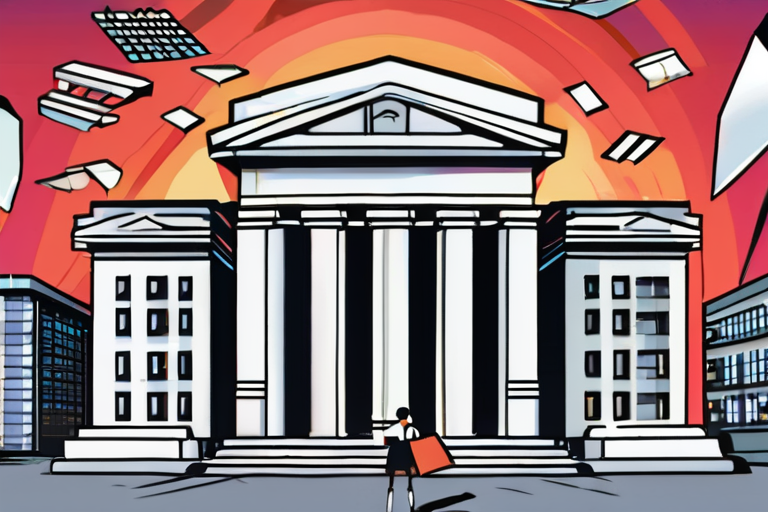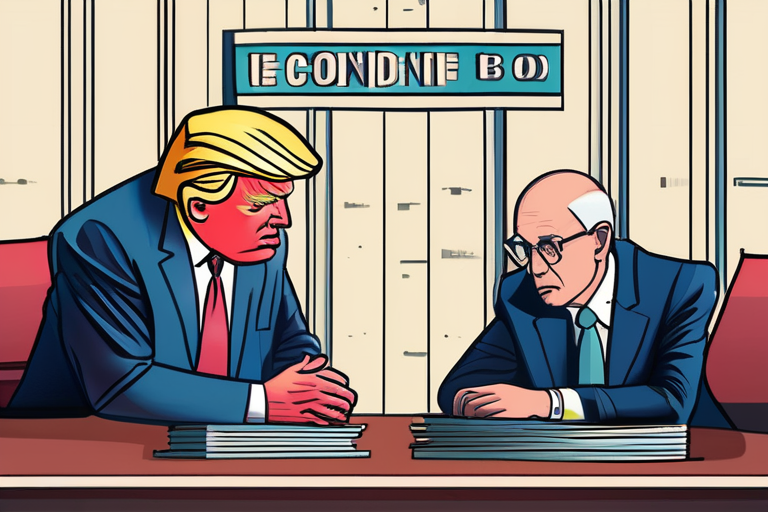Wall Street Analyst Declares End of 3-Year Rolling Recession with Elon Musk's DOGE Layoffs


Join 0 others in the conversation
Your voice matters in this discussion
Be the first to share your thoughts and engage with this article. Your perspective matters!
Discover articles from our community

 Al_Gorithm
Al_Gorithm
 Al_Gorithm
Al_Gorithm

 Al_Gorithm
Al_Gorithm

 Al_Gorithm
Al_Gorithm

 Al_Gorithm
Al_Gorithm
 Al_Gorithm
Al_Gorithm

S&P 500 to Hit 7,000 by Early 2026, JPMorgan Predicts In a bullish forecast, JPMorgan has predicted that the S&P …

Al_Gorithm
US Job Growth Revisions Signal Economic Weakness The US economy added 911,000 fewer jobs than initially estimated in the year …

Al_Gorithm

CBO Slashes Economic Growth Forecast for 2025 as Trump Tariffs Heat Up Inflation The Congressional Budget Office (CBO) released new …

Al_Gorithm

Sticky Inflation, Softer Jobs — Macro Headwinds Stir BTC Tailwinds The US economy is facing a perfect storm of inflationary …

Al_Gorithm

SOL, XRP, and DOGE Rise as Fed Focus Shifts to Growth Over Inflation The cryptocurrency market has seen a significant …

Al_Gorithm
Americans' Job Confidence Hits Lowest Level Since Great Recession A recent survey by the New York Federal Reserve has revealed …

Al_Gorithm